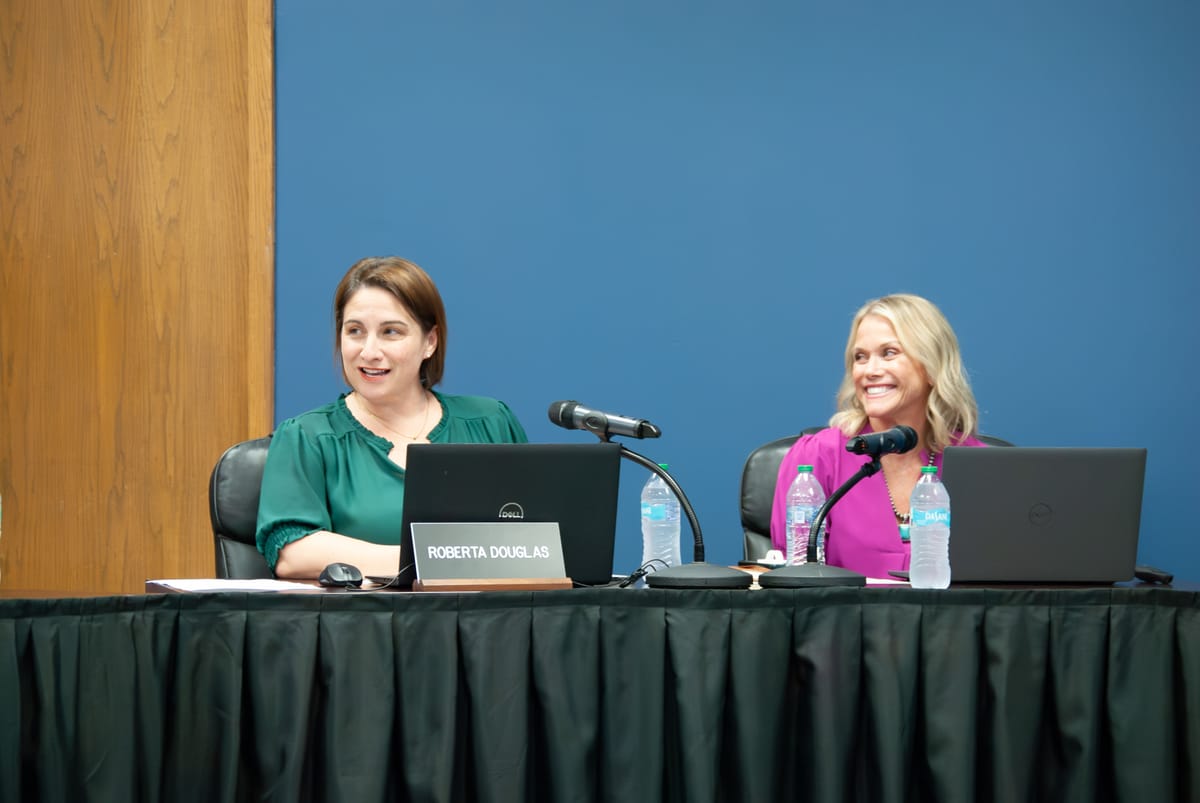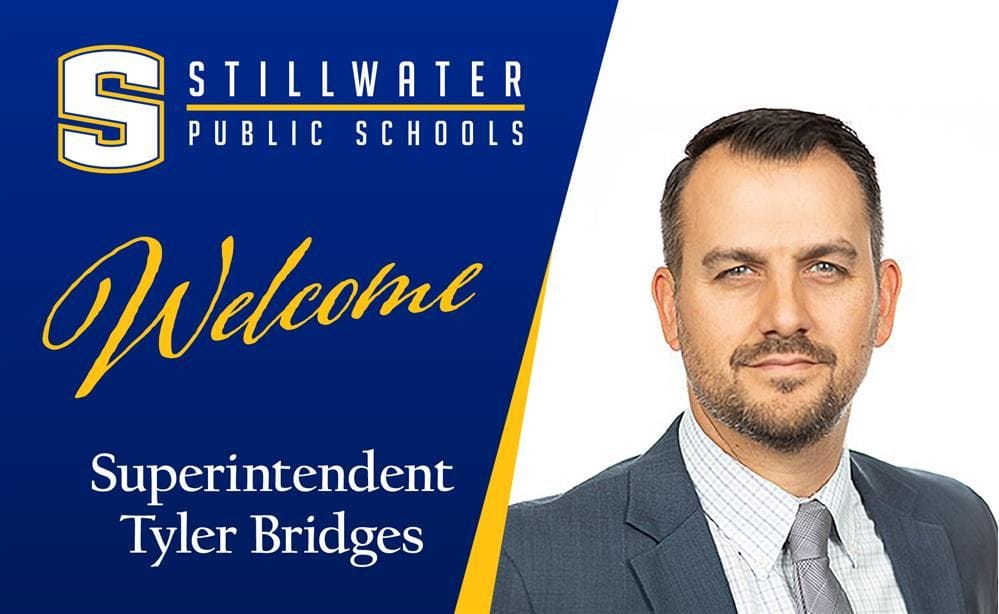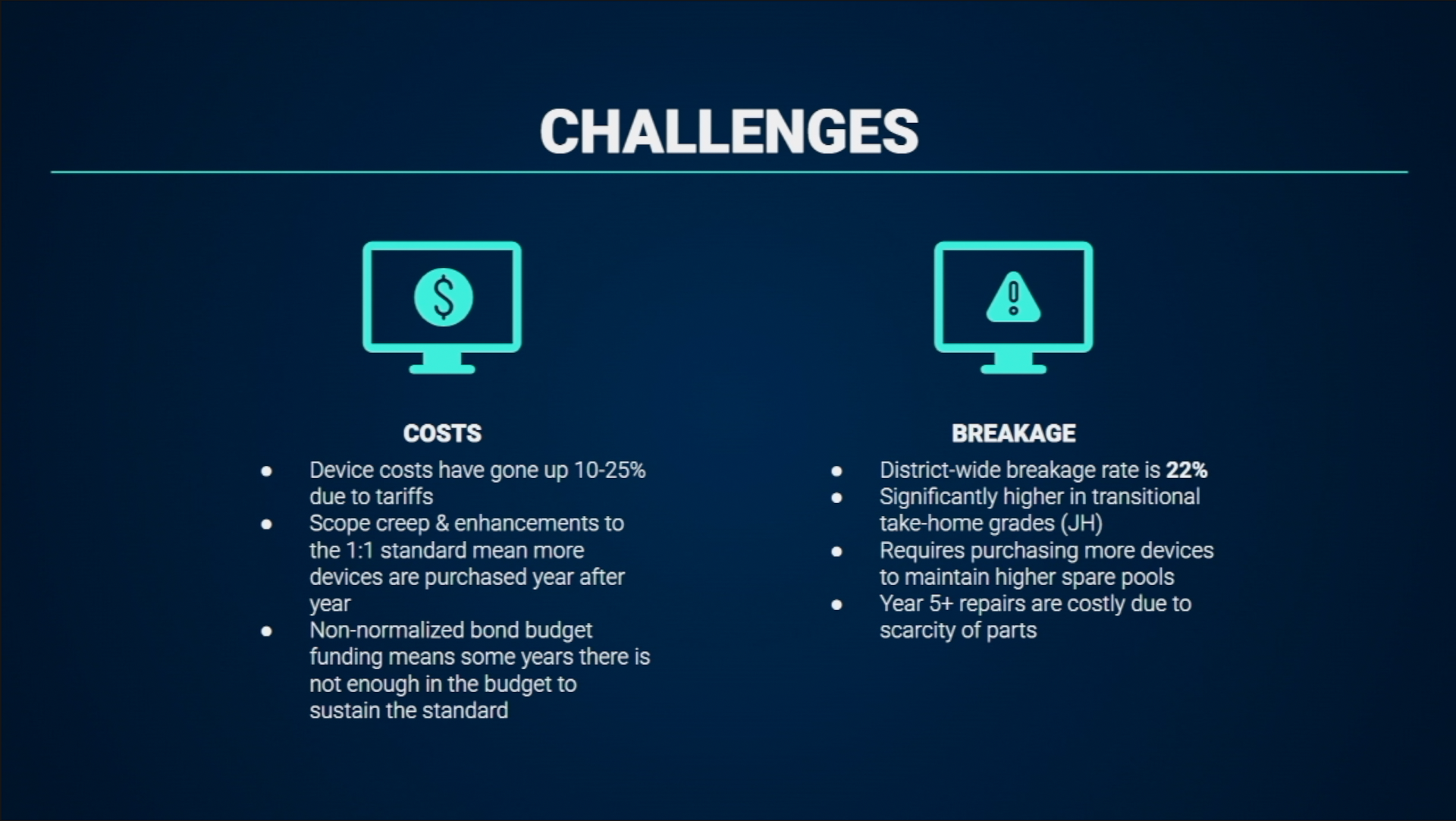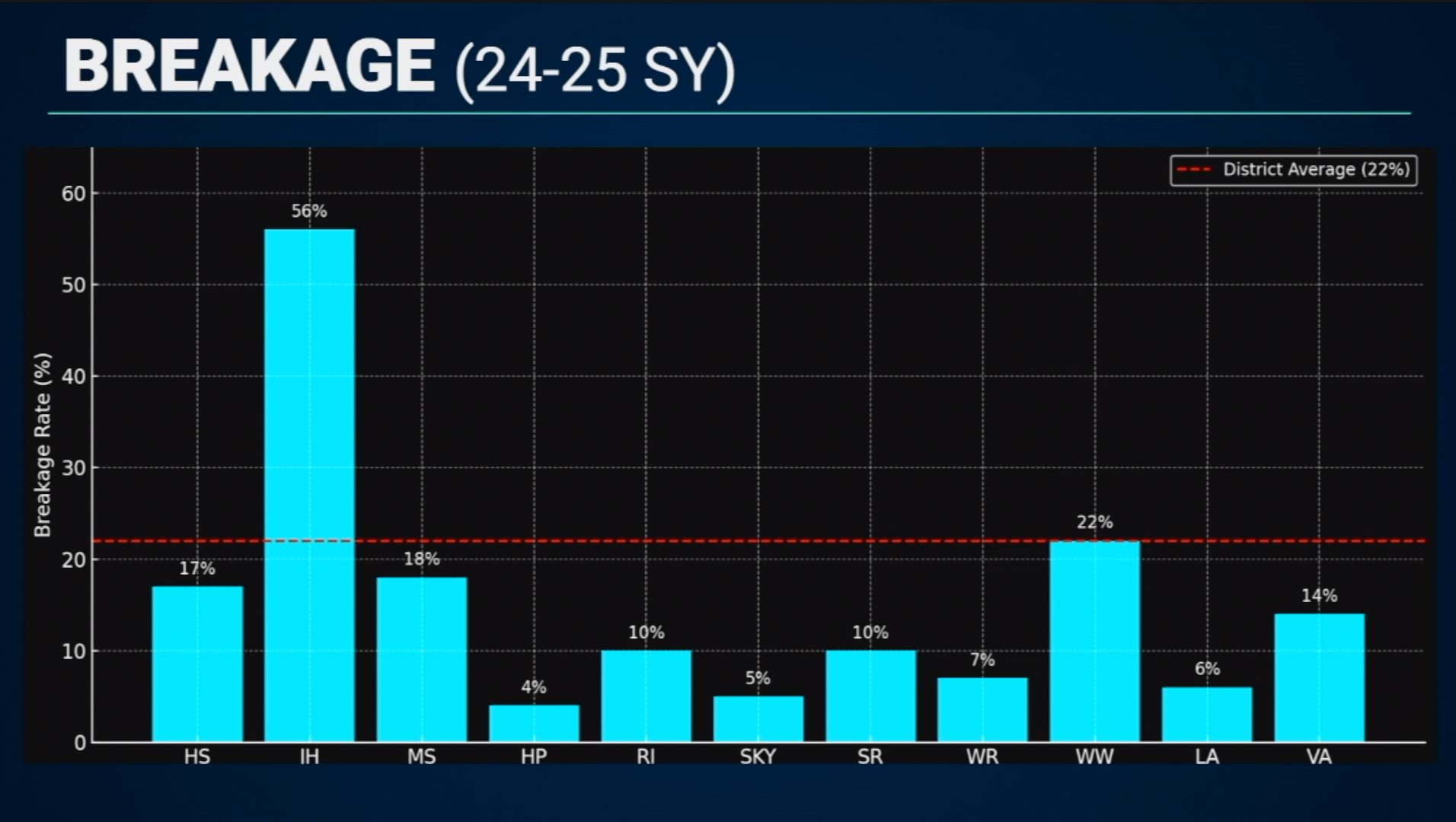

Stillwater Public Schools introduced two new administrators to its leadership team while advancing a comprehensive technology initiative designed to provide devices to all students.
The Stillwater Board of Education approved the hiring of Dr. Angela Rhoades as the district's new Assistant Superintendent for Educational Services and Jim Vestal as the new Stillwater Junior High School principal during its June 10 meeting.
Incoming Superintendent Tyler Bridges, who officially takes the helm July 1, introduced both candidates to the board.
"Both candidates tonight have upwards and over 30 years of education experience in various roles from classroom teacher all the way up to the highest levels of leadership within districts," Bridges said. "I have no doubts that going through the process the way that we have, that we are going to add two very, very strong leaders to our leadership team here at Stillwater Public Schools."



Dr. Rhoades comes to Stillwater with extensive experience, most recently serving as the assistant superintendent for secondary educational services for Enid Public Schools. Her career includes roles as a special education teacher, principal, and superintendent.
"She has done a lot of different things within the school systems," Bridges said. "Coming from special education teacher all the way through assistant superintendent, served as superintendent as well in large and small districts and has a wealth of experience."
Vestal brings nearly 30 years of education experience to his new role at Stillwater Junior High School. His background includes teaching, coaching, and administrative positions, most recently serving as superintendent of Aline-Cleo Public Schools.
The board also received a detailed presentation on the district's one-to-one technology initiative from Technology Director Bryan Bloomer, who outlined the program's progress, challenges, and future plans.
"Why we went one-to-one is important," Bloomer explained. "Some districts went one-to-one because they have to. We went one-to-one because we chose to."

The initiative, launched in 2023 and supported by bond funding, aims to provide all students with access to technology regardless of socioeconomic status. Currently, every student from second through 12th grade receives a device, while kindergarten and first-grade classrooms have 10 devices per homeroom.
"We want to provide all students, regardless of their demographic or socioeconomic status, with the technology necessary for modern learning," Bloomer said. "We want to allow learning and instruction to take place outside the four walls of the classroom when necessary and importantly when appropriate."
The program standardizes around Chromebooks for most students, with iPads for pre-K and some specialized uses. Devices include protective cases and warranties to manage the inevitable wear and tear.
Bloomer reported that the district-wide breakage rate for devices stands at 22%, which he noted is below the 25-35% average seen in many districts. Junior high students have the highest breakage rates, presenting a challenge the district continues to address.
"We're not as bad as some districts," Bloomer said. "Our district-wide breakage rate for this past school year is 22%, which is not bad."


Board member Dr. Marshall Baker expressed concerns about ensuring the technology initiative remains a priority amid other capital projects.
"I think we have to defend and protect the ed services portions of our bonds, which I see tech as ed services," Baker said. "That's why tech exists, is to serve students."
Baker also emphasized the importance of device utilization, noting that simply having devices isn't enough.
"I'm a dad of two kids and I've never seen a computer come home," Baker said. "Having the computers is not the KPI [key performance indicator]. That's not the return on investment. The return on investment is... a computer in every kid's hand can normalize and standardize the instruction that they have."
Bloomer acknowledged these concerns and indicated that some schools that had previously limited take-home policies would be adjusting their approaches.
"In retrospect, and a year further down the road, I think we're going to pivot back to a take-home policy for that particular school site, the middle school," Bloomer said.
Acting Superintendent Dr. Janet Vinson, who is retiring, emphasized that technology is just one component of effective education.
"A device is a device," Vinson said. "The key piece in that is a guaranteed viable curriculum that every single kid has access to. And that's why pulling Canvas in this year was such a big deal, because that edges us closer and closer."
A message from Visit Stillwater
Summer in America's Friendliest College Town calls for live music, kids' camps, livestock shows, art, and so much more. Check out all there is to see and do in The Original Home of Red Dirt Music this month!
The board also approved the 2025-2026 budget presented by Chief Financial Officer Kristie Newby, who promised increased transparency in financial reporting in the coming year.
"We will be even more transparent throughout the next year," Newby said. "So I look forward to that."
Board members also expressed appreciation for Dr. Vinson's leadership during her tenure as acting superintendent.
"We absolutely appreciate your leadership," Board President Roberta Douglas said. "Based on the last year that we have had, there's just been challenges. There's been some really great things come out of some of the decisions. And I just know that we are moving forward in such a positive way."


